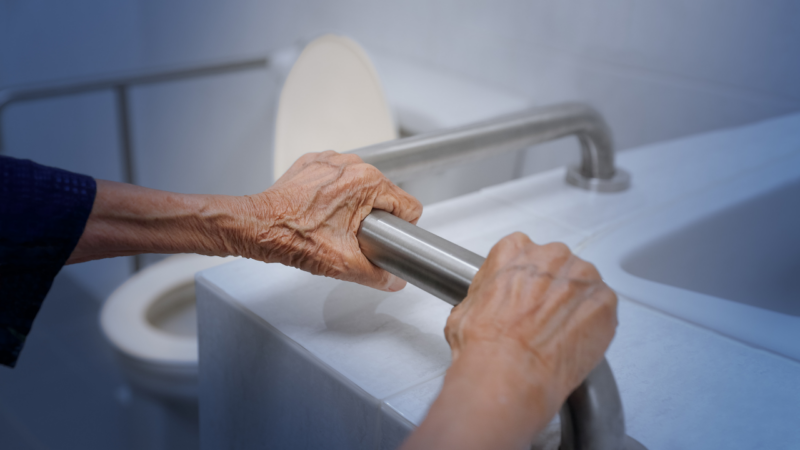As we age, changes inevitably occur in our bodies that make aspects of our daily lives more challenging.
For instance, stiffness and pain in our joints can make it harder to perform tasks that were once simple, like hanging the washing or lifting the kettle.
Balance issues can make it harder to pick up objects off the floor.
Reduced strength in the legs can make it more difficult to stand up from a seated position.
We are fortunate that in today’s technology-filled world, there are many products that are designed to assist us to live independently. There are also different strategies that we can implement to support ourselves or our loved ones to stay safe at home.
Let’s take a look at five simple pieces of equipment that could help you or your elderly loved one stay independent and safe at home.
1. Personal Alarms
There is a range of personal alarms on the market. Most are in the form of a wearable pendant. Typically, they can be worn by the elderly person and are pre-set with contact numbers that are dialled when the wearer presses the alarm button.
These personal alarms are set up to dial family members to alert them of an incident, such as if the elderly person has had a fall and is unable to get up off the ground to call for help. If the family members are not reachable, the pendant alarm dials emergency services.
Many alarms today allow for two-way conversation via the pendant, making communication during an incident easily achievable with the press of a button.
This handy piece of equipment is particularly useful for older adults living alone. They not only give peace of mind to the wearer but also to the family who may feel more at ease, knowing that if needed their elderly loved one has a way to contact them.
2. Over-toilet-aids
An over-toilet-aid (also known as an over-toilet-frame) is a handy item to have if you or your elderly loved one starts showing signs of having difficulty standing up from the toilet.
Toilet seat heights are usually low to the ground, so an over-toilet-aid can add some height to the toilet seat, making it easier for the older person to get back up off the toilet.
This, in turn, can help to keep the older person safe in the bathroom. Over-toilet-aids are height adjustable and easily put in place or removed, with no permanent fixture required.
3. Grab Rails
Grab rails are helpful items to have installed, particularly if an older person is having issues with balance or just needs a bit of support when navigating challenging spaces.

They are most commonly installed in the bathroom, including in the shower, outside of the shower or bath or next to the toilet.
The bathroom is a high-risk space for falls, due to the slippery nature of tiles and water. Grab rails provide a point of safety, and in some cases, can be the difference between an elderly person being able to use the bathroom independently or them requiring assistance from a carer or family member to complete their personal care activities.
To ensure their safety, grab rails should be installed professionally, so an assessment is recommended by an occupational therapist to determine the best position and type for the bathroom.
4. Reachers / Grabbers
Reaching aids or grabbers are simple aids that extend the user’s arm reach.
They provide a strong grip and they help to reach items from high positions or assist with picking objects up off the floor where stooping or bending over is difficult for the person.
This can help to reduce the risk of falls as the older person isn’t required to get into tricky positions to retrieve dropped items or reach items from up high.
5. Non-slip mats
There are plenty of non-slip mat products available, designed to prevent accidents and avoid slip hazards. They are most commonly used in bathrooms and kitchens, where liquid might end up on the ground.
Non-slip bath and shower mats are available, specifically designed to promote elderly independence and safety in the bathroom. Anti-slip mats can give the elderly person the confidence to move about the home and carry on with their activities of daily living.
At The Physio Co, our team of physiotherapists visit older adults wherever they call home and can assist you or your elderly loved one to stay mobile, safe and happy. Not only can our team help to recommend strategies to promote independence and safety at home, but we can help to target and improve the root cause of any physical issues that are making activities of daily living challenging.
Get in touch with our friendly team today to find out how we can help!
Article written by Kathy Soo (Physiotherapist – Team Sydney)

 1300 797 793
1300 797 793
